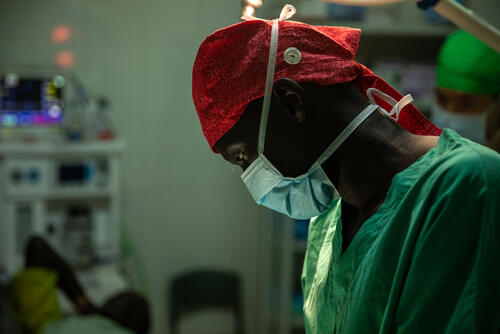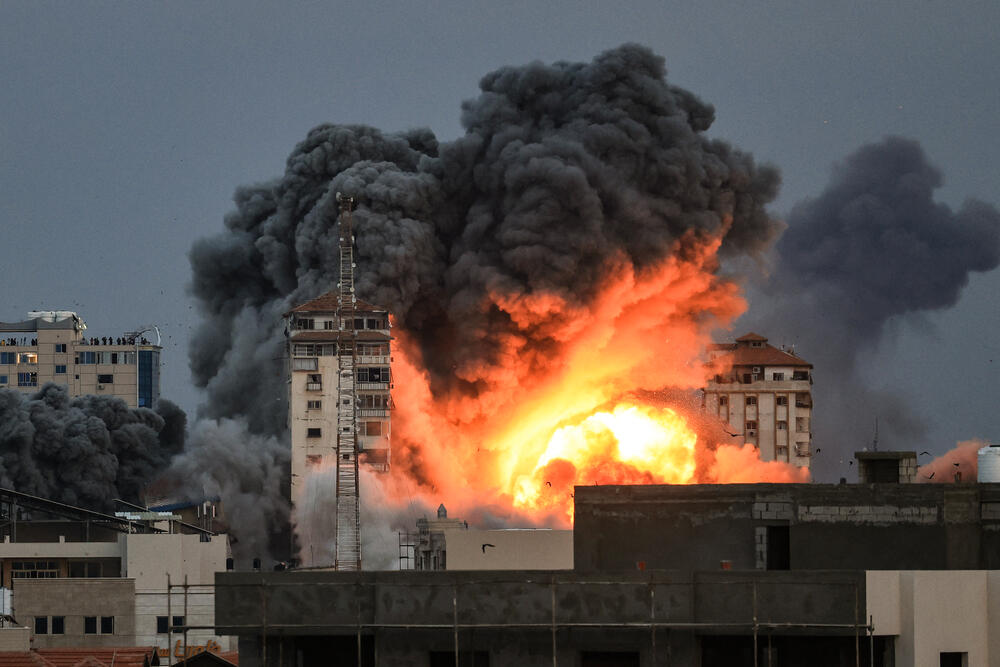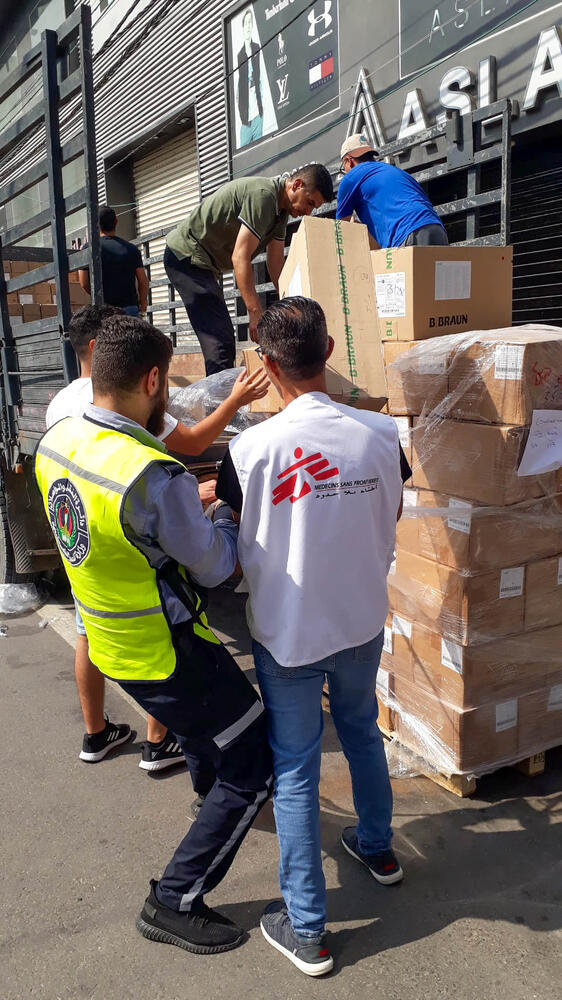Gaza: “The situation is catastrophic; the hospitals are overwhelmed”
Léo Cans is the Head of Médecins Sans Frontières / Doctors Without Borders (MSF) in Palestine. From his base in Jerusalem, he shares this report on the unfolding situation in Gaza where our staff are working to treat the wounded.
"The situation in Gaza is catastrophic; the hospitals are overwhelmed. The number of wounded is extremely high – there is a constant influx into all the hospitals in the Gaza Strip. The medical teams are exhausted, working around the clock to treat the wounded.
The bombardments are very intense. Entire buildings are being destroyed, including one last night right next to the MSF office.
Sometimes people receive a text message in the middle of the night telling them to evacuate their homes, as happened to some of our team members in Gaza.
You have to wake up your children in the middle of the night and leave your house, without taking any of your belongings, to get to safety. But very often people don't know where to go; they find themselves outside in the middle of the night, under a hail of bombs. Where can they find safety?
The latest estimates put the number of displaced people at around 200,000, mainly people who have received those SMS messages and whose homes have been destroyed. They need everything: water, a place to shower, food, a mattress to sleep on... in short, these are varied but basic needs.
Support our expert surgical teams working in crisis zones worldwide

Now the Israeli government has decided to completely cut off water and electricity supplies, and the phone network has been badly damaged.
This morning, we were unable to reach our teams in Gaza by phone. Inevitably, this all makes it extremely difficult to coordinate rescue operations and access the injured.
Healthcare is not a target
In Gaza today, people are terrified. I speak very regularly with our colleagues there. They are very tough people because unfortunately they have lived through a lot of wars, but the current situation is causing them extreme anxiety.
They say that this time it's different: they don't see a way out and they wonder how it’s all going to end. They are in terrible mental distress. There aren't words to describe what people are going through.
As for MSF, we are very concerned to see that medical facilities have not been spared.
One of the hospitals we support was hit by an airstrike and damaged. Another airstrike destroyed an ambulance carrying the wounded, right in front of the hospital where we work. The MSF team, who were operating on a patient, had to leave the hospital in a hurry.
We repeat: medical facilities must be respected. This is not something that should have to be negotiated.
Surgery and supplies
Currently, MSF is donating essential medicines and medical equipment to the main hospitals in the Gaza Strip. We have also sent surgical teams to two hospitals to help treat the wounded.
In the coming days, there will also be a lot of post-operative surgery to be carried out, as most of the wounded we receive will need several surgical interventions before they can be saved.
Yesterday we also set up a clinic in downtown Gaza City for people with other injuries, which we will try to keep open if conditions allow.
Yesterday morning, we received a 13-year-old boy whose body was almost completely burned after a bomb fell right next to his house, starting a fire. These are very complicated cases to treat in such conditions and, when children are involved, it's very hard to bear.
The intensity of the violence and bombardments is shocking, as is the death toll. The declaration of war must not, under any circumstances, lead to collective punishment of the population of Gaza. Cutting off water, electricity and fuel supplies is unacceptable, as it punishes the entire population and deprives them of their basic needs."
Is MSF treating wounded people in Israel?
MSF is an impartial organisation. So, we are sometimes asked why we do not currently run medical programmes in Israel.
We have offered our support to Israeli hospitals treating high numbers of casualties. However, Israel has strong emergency and health systems in place.
MSF focuses on filling gaps in healthcare and going wherever that need is greatest. Our teams are working in Gaza and the West Bank - as we have for 20 years - providing medical aid and supporting a healthcare system that urgently lacks both staff and supplies.
This is why we report on what our staff and patients are directly witnessing and experiencing in Gaza. Hospitals are becoming overwhelmed and facing shortages of drugs, medical supplies, and fuel for generators.
MSF in Palestine
Palestine comprises parts of modern Israel and the Palestinian territories of the Gaza Strip and the West Bank.
Médecins Sans Frontières/Doctors Without Borders (MSF) first worked in Palestine in 1989.
Today, we provide medical and psychological assistance to people affected by the ongoing conflict, continuing our long-running mental health programmes on the West Bank and support to burns and trauma victims in the Gaza Strip. Since 2018, we have also been running a reconstructive surgery programme in northern Gaza.

